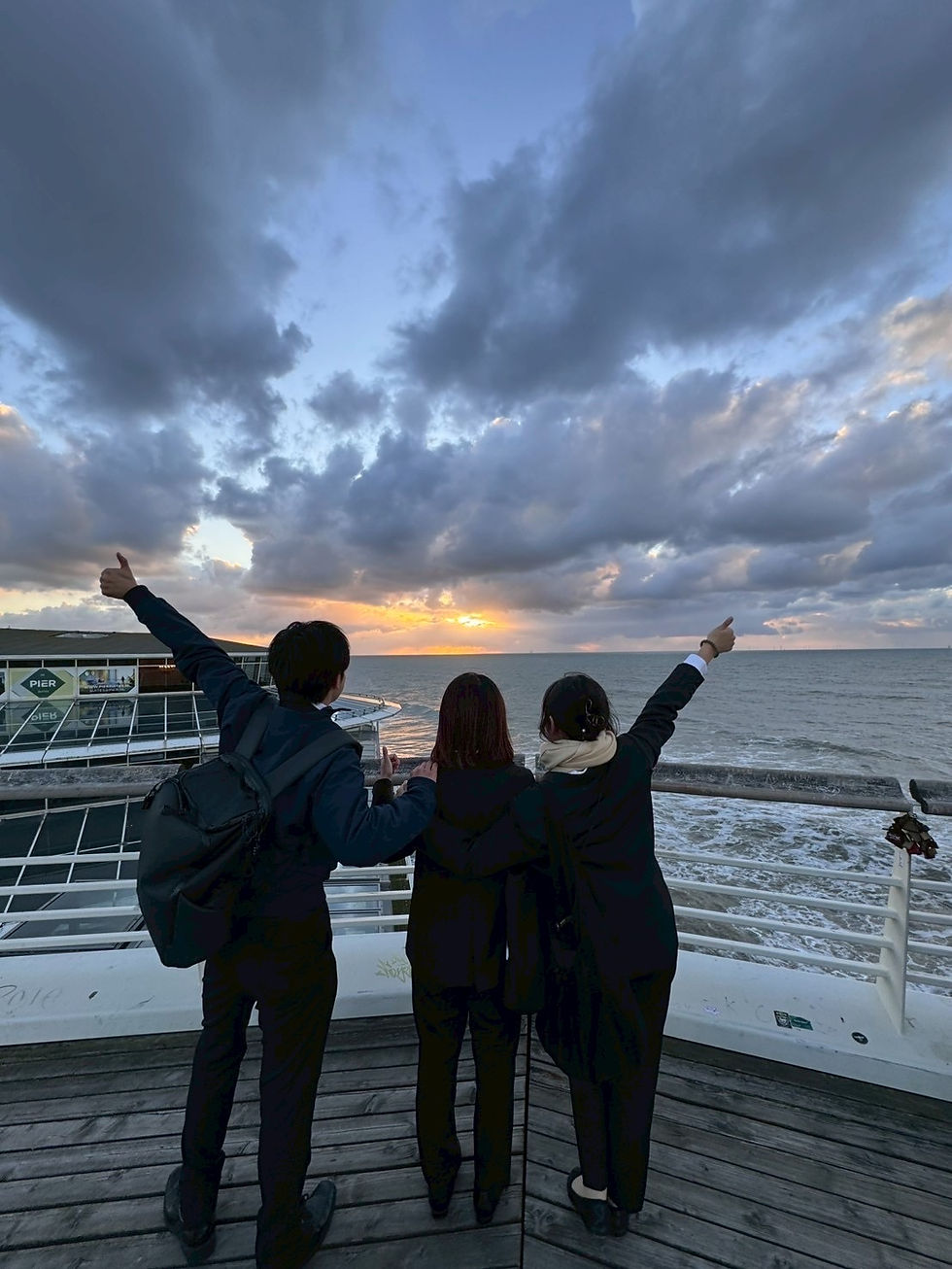Participation in the International Humanitarian Law (IHL) Moot Court competition
- Administrator
- 2023年3月23日
- 読了時間: 3分
Hitomi Suzuki (B4)
The International Committee of the Red Cross (ICRC) holds the Moot Court competition. Moot Court means the simulation of the trial, in this case, one in the International Criminal Court (ICC). Participants are divided into the Prosecutor, who proves the war crimes of the accused, and the Defendant, who protects the accused from the prosecution. Students from several Universities all over Japan divert their knowledge of International Humanitarian Law into practice action. The fact sheet provided a fictitious conflict situation and four war crimes violated by the president of a country and was written and distributed to participants three months before the preliminary round of the competition. Though all of the events in the fact sheet were not actual happenings, these fictional cases are made based on the real.
This competition was special for F’s seminar team. The student in this seminar participated in the Moot Court competition for four years. However, we could not get the result that they hoped to achieve. So, all of the Moot Court team members had strong readiness and desire to qualify for the preliminary round. In addition, it was the last time for me to be able to join this competition because of the convention rules, which provided that the same person could not participate in the competition more than three times. That is why my participation in this competition summarizes my learning in F’s seminar.
We started the preparation for the competition in July 2022. Another member and I participated in the Moot Court Competition last year and had the experience of supporting for official member two years ago. We have piled up the experience and learning for two years, but it is still essential to grasp the basic knowledge of the IHL for the legal discussion. Therefore, we first decided to promote fundamental study regarding the IHL while using textbooks published by the ICRC. We held meetings once a week and chose lecture-style learning in that one person explained about theory and practice of the IHL in English. The purpose of this exercise was not only to learn the IHL but also to improve my conversation skill in English.
After these practices, we moved on to the next step, writing the Memorial in September 2022. Making legal statements from the perspective of the Prosecutor and the Defendant, respectively, had great difficulty because two of the four war crimes have not been tried in the ICC. These war crimes are related to the violation of the environment. Others are related to killing the United Nations staff and civilians. It takes two and a half months to finish creating the Memorial. The next step is oral practice. We have to state our claims and answer the questions from the judges in English. Attitude, correct answers to the question, and theoretical statements are significant criteria for assessment. So, it was necessary to memorize all scripts and to prepare answers to the questions from the judges for fluent presentations. I made 12 papers on the question lists.
On 3 December 2022, the preliminary round of the Moot Court competition was held online. F’s seminar team could finally qualify for this round in second place! We continued preparing for the semi-final and final rounds for a week.
The semi-final and final rounds were held on 11 December 2022 at Waseda University. Thanks to winning the semi-final round of the Prosecutor’s team, I could take part in the final round as the Defendant. Unfortunately, we could not win the victory but could win the runner-up prize.
Through the experience of joining this competition twice, I learned that IHL could be better as a shield to protect the people affected by conflicts. There are many undefined words in legal documents. We must face the issues for which solutions have yet to be found. However, it is impossible to guarantee the rights of people deprived of their lives and dignity if our statement is not satisfied from a legal perspective. I felt the enormous responsibility of the people in charge of humanitarian assistance. Lastly, I am grateful to team members, members of the F’s seminar, and Prof. Fujii.





コメント